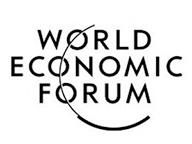Faculty News
—
In an in-depth interview, Professor Hila Lifshitz-Assaf discusses her research on open innovation at NASA
—

Excerpt from ASQ Blog -- "And I think it proved itself in the end, that I was able to see specifically in the study which labs, which R&D professionals of those labs were adopting open innovation or not. That was not something that was easy to see even for the managers, initially, because they were doing so much of talking and kind of talking the talk but not walking the walk. And I was able to see both the talk and the walk because I was in the labs. So that made a big difference."
Faculty News
—

Excerpt from ASQ Blog -- "And I think it proved itself in the end, that I was able to see specifically in the study which labs, which R&D professionals of those labs were adopting open innovation or not. That was not something that was easy to see even for the managers, initially, because they were doing so much of talking and kind of talking the talk but not walking the walk. And I was able to see both the talk and the walk because I was in the labs. So that made a big difference."






















